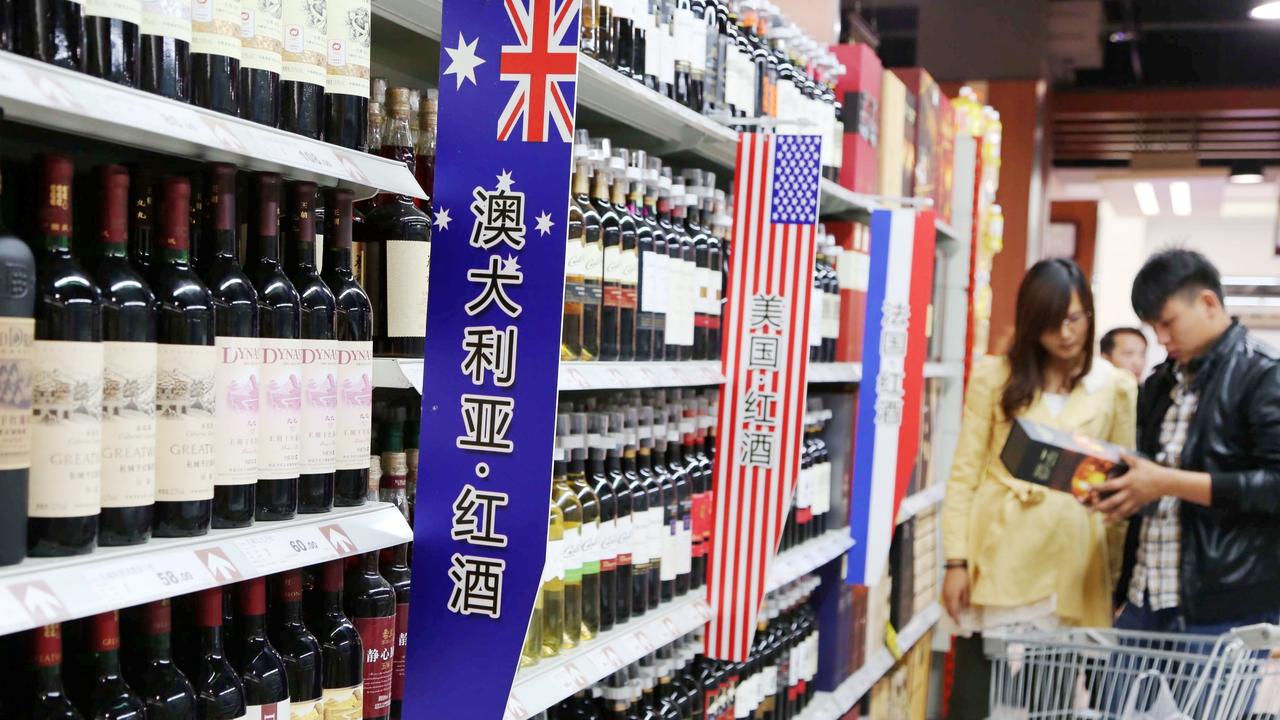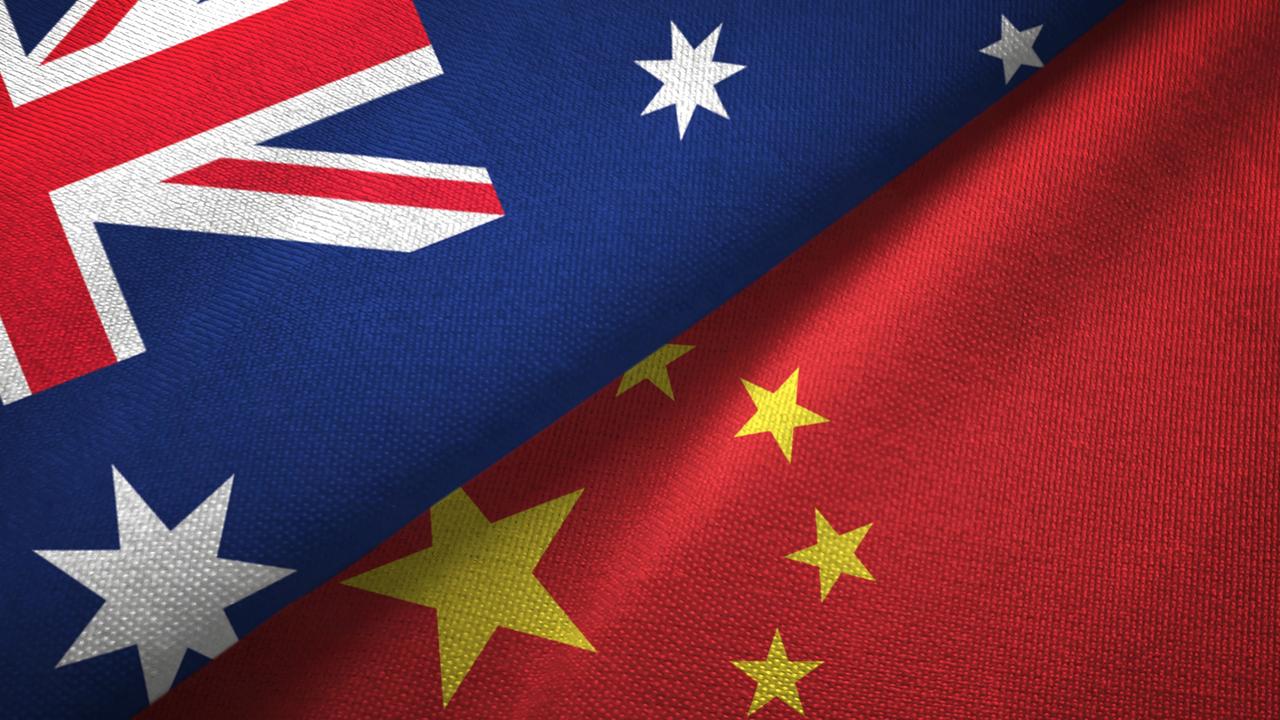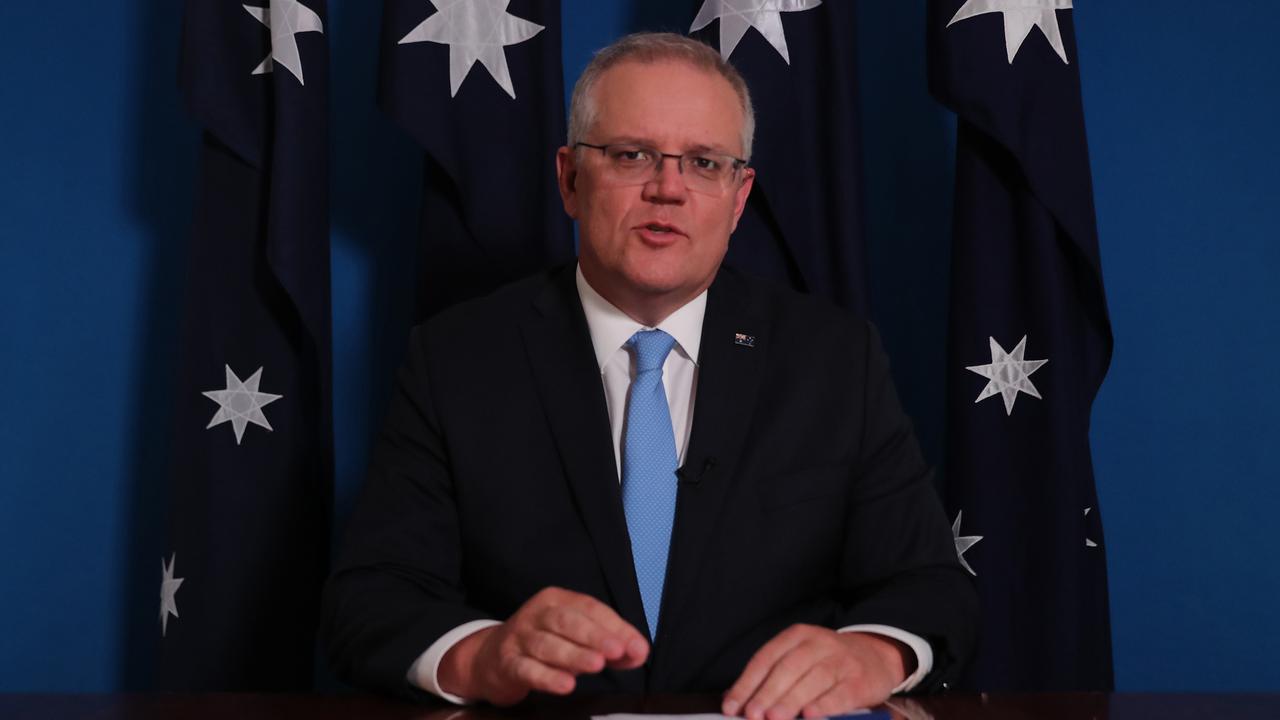Experts reveal true cost of Australia’s trade war with China
Australia’s alarming spat with Beijing shows no sign of slowing – and everyday Aussies could be the biggest losers if the crisis boils over.

Australia’s relationship with China has plunged to new lows this month – but it turns out our greatest weakness could also be our biggest protection against the superpower.
The feud between the two nations has been brewing for several years, but the crisis came to a head recently when Chinese Foreign Ministry spokesman Zhao Lijian shared a doctored, anti-Australian image on Twitter.
China has also slapped a number of Australian industries with devastating tariffs in recent months, sparking a push to boycott Chinese products and potentially impose sanctions of our own in retaliation.
But experts warn such a move would prove disastrous – and would ultimately end up hurting Aussie families.
‘HIGHER PRICES ALL ROUND’
China is Australia’s most important partner when it comes to imports, with Aussies snapping up a staggering $71.3 billion worth of goods and services from China in 2017/18 – the equivalent of 18 per cent of Australia’s total imports and covering everything from telecom equipment to computers, furniture, toys and sporting goods.
It is also estimated that a total trade war with China would cost Australia 6 per cent of GDP, according to a recent piece in The Conversation by University of Western Australia Winthrop professor of economics Rod Tyers and Australian National University senior lecturer in economics Yixiao Zhou.
RELATED: China’s latest insult to Australia

The academics explain that if the relationship were to break down completely and bring an end to imports and exports going both ways, the loss of Chinese exports to Australia would be catastrophic to us, but would be “mosquito bites by comparison” to China.
Meanwhile, a recent Daily Mail article argued a full trade war with China would cause the price of everyday consumer goods to double, although Professor Jane Golley, the director of ANU’s Centre on China in the World, told news.com.au it was hard to predict potential price hikes and economic impacts.
“People keep asking me what the cost would be if this trade war was to continue to escalate, and the reality is no one seems to know – that’s the biggest problem,” Prof Golley said.
“Surely someone in government is doing the modelling to understand what the economic costs would be, but at this stage the focus is so much on the security costs of engaging with China that the economic damage of not engaging is being overlooked.
“It’s guesswork, but I heard (Australian economist) Geoff Raby recently point out that Chinese exports account for one-tenth of our GDP – so roughly, does that mean one in 10 jobs as well?
“Some may retort that there are alternative markets to diversify into, but the reality is that no other market in the world is recording positive GDP growth this year and China will remain far and away the largest contributor to global growth in the years ahead too.
“I genuinely fear for those people across all the sectors that Beijing can and may target, as job losses could be significant and painful.”
Prof Golley said it was difficult to predict what an escalating trade war could mean when it comes to the price of everyday items, but that it was fair to assume protectionism would lead to higher costs.
“As long as China continues to produce the goods we want, I don’t see why they wouldn’t sell to us, so it may not have a big impact on our import prices, but over the longer term protectionism that has been increasing in the US, China and across the world will mean higher prices all round,” Prof Golley said.
“We can’t produce the goods that China does at anywhere near the cost. The best alternative may well be trying to consume less, and save more.”
‘SERIOUS SITUATION’
IBISWorld senior industry analyst Liam Harrison told news.com.au it was unlikely the Australian government would retaliate with tit-for-tat restrictions on Chinese goods as it would “hurt us as much as it hurts them”.
He said so far, China had mostly restricted luxury goods or items it could source elsewhere, and hadn’t stopped the flow of items into Australia.
And if Beijing were to ban manufacturers from selling to Australia, it would be almost impossible to stop them from selling to neighbouring countries which could simply then on-sell to us, although such a scenario would cause delays and supply issues.
“It would create a bureaucratic nightmare to try and control all countries so it is very unlikely given the web of control they would need to create,” he said.
But Mr Harrison said it was possible China might restrict imports into Australia in the short term, which would mean we would “struggle” to get our hands on enough whitegoods, clothing, tech items and other essentials.
RELATED: New ‘anti-China’ laws to upset Beijing

“That would be a serious situation if it eventuated – it’s unlikely, but then we didn’t imagine ourselves in this situation,“ he said.
If that were to occur, Mr Harrison said it would play out in the same way the toilet paper shortage did during the peak of the coronavirus crisis, with shoppers stockpiling goods out of fear or opportunism.
But he said it was more likely China would continue to restrict more and more Australian exports as the stoush wore on, which could have a spillover effect on the wider economy.
And while mining is our greatest weakness, it is also one of our greatest strengths.
“It’s a double edged sword – China really needs iron ore, and if China were to block it, it would be a huge hit to Australia with tens of billions of dollars in exports suddenly dropping off,” Mr Harrison explained.
“But there are not many alternative markets and recently we’ve seen the price of iron ore actually going up.
“It all depends on how much hurt China is willing to take internally for external goals, and ultimately we don’t know.”
If China were to ban Australian iron ore, Mr Harrison said it would have a significant flow-on effect to the wider economy due to job losses within the industry which would mean less money flowing through the economy.
“The iron ore industry is huge and WA is likely to feel the biggest pinch. It would create a reduction in consumption … at a time when we are trying to get the economy back on track after COVID-19,” he said.
If that scenario were to happen, it might not plunge Australia back into recession but could cause a stagnation in GDP growth and would leave “less fuel in the tank”.
It would also hurt both state and federal budgets due to lost mining royalties and tax revenue and would be a “huge shock” to Australia’s wider economy.
However, Mr Harrison stressed it was an unlikely scenario and that such a drastic ban would mean the situation was getting “pretty serious”.
“Iron ore is one of our biggest points of leverage but also one of our biggest weaknesses because of that symbiotic relationship (with China),” he said.
JOB LOSSES ‘UNAVOIDABLE’
Professor James Laurenceson, the director of the Australia-China Relations Institute at UTS, told news.com.au he believed there was almost zero chance of Australia retaliating, as it would ultimately hurt us far more than it would China and would be against our national interest.
He said while he could imagine China’s sanctions stretching to cover new industries such as dairy and fruit in the months ahead, the more restrictions that were imposed, the more Beijing risked hurting its own interest.
“For example, iron ore would hurt Australia the most, but if China hit that, it would shoot itself in the foot even more,” he said.
RELATED: Racist joke prompts China backlash

“I can see restrictions spreading but I don’t think we should imagine it will affect every single good Australia exports to China.”
Prof Laurenceson said that so far, China had been strategic in targeting goods it could easily source elsewhere while it has been more or less business as usual for industries it relied on Australia for – and that while job losses were “unavoidable” in certain, hard-hit sectors, he didn’t expect severe nationwide impacts.
“It’s not all rosy, but it’s a big mistake to panic and imagine the whole relationship blowing up,” he said.
Instead, Prof Laurenceson predicted more anti-Australian propaganda and an “escalation in the war of words” between the nations rather than a complete breakdown of the trade relationship.



